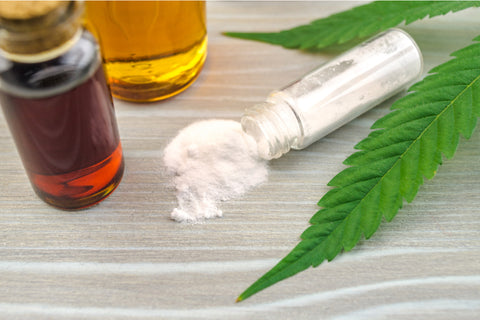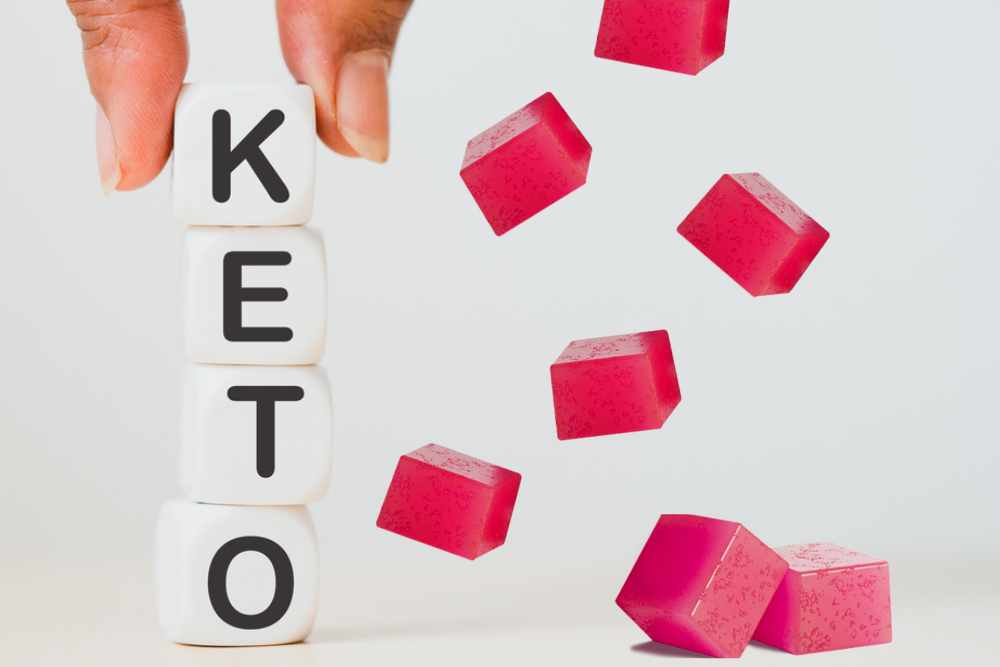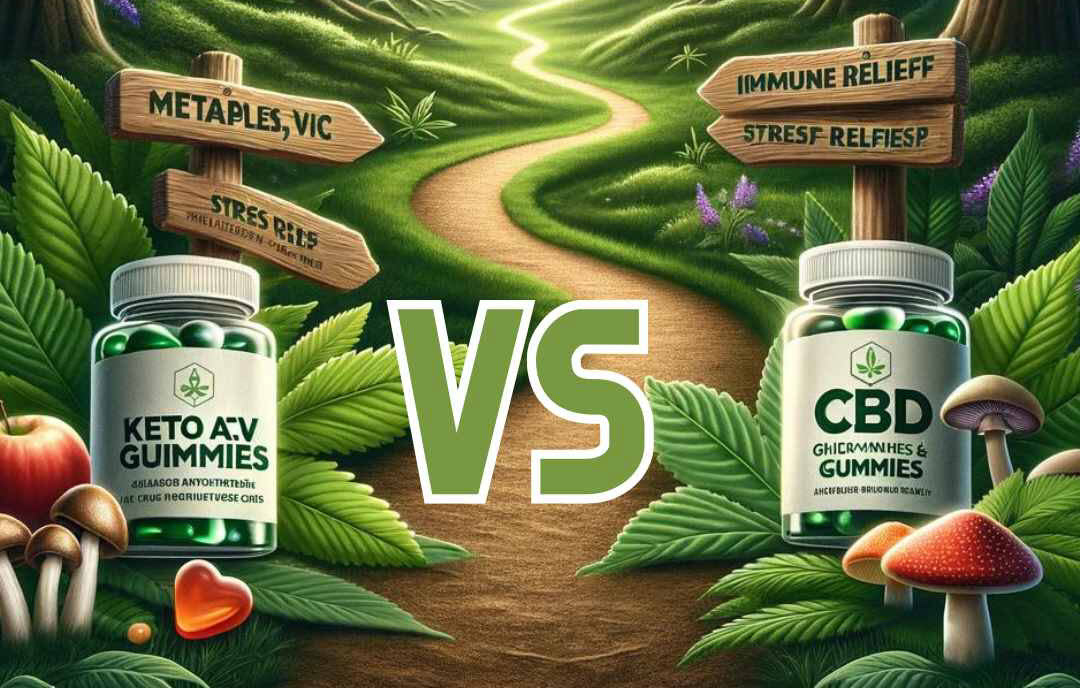WHAT IS DELTA-10 AND WHAT CAN IT DO?
Oh my delta, there’s more to THC! Most likely, you’ve already heard about delta-9-tetrahydrocannabinol (THC), which exerts a high and euphoric effect on users.
You’ve probably heard a bit about delta-8-THC too, the molecular “side player” that you can synthesize from legal hemp from a less psychoactive effect.
In today’s article, we’ll talk all things delta-10-THC, why you need to know about it, and the ins and outs of its safety, legalization, and potential benefits.
1, 2, 3, yipee!
WHAT IS DELTA-10?
Delta-10 THC is one of the 100+ cannabinoids present in hemp and cannabis.
Unlike delta-9-THC, delta-10-THC appears in trace amounts - it may take an exhaustive amount of time and plant material trying to extract it from natural strains.
In fact, delta-10-THC is so elusive, laboratories often misidentify the compound for cannabichromene (CBC) or cannabicyclol (CBL).
Over the last 20 years or so, cannabis researchers have discovered many forms of THC, also known as THC isomers. The most well-known THC found in cannabis has been suggested to be delta-9-THC.

However, today, there are various isomers like delta-8-THC and now delta-10-THC. To put it in simpler terms, isomers are compounds that share an identical chemical formula but are arranged differently. This new structure usually comes with new pharmacological properties.
As we’ll touch on below, the slight difference in chemical structure (between delta-10 and delta-8) could translate into an entirely new experience for users, in regards to psychoactive and potentially euphoric effects. The novelty perceptions have gotten cannabis users excited about trying these “new versions” of THC.
Just like any new weed strain to emerge, there may be an alternative to the same old “high”, following suit with its own unique effects and benefits.
Funny story: Delta-10-THC was actually discovered somewhat by total accident. It was found by Fusion Farms in California, when extracting THC distillate from a batch of cannabis, that was contaminated with a fire retardant. Because of this, the THC formed these mysterious crystals that were originally misidentified as the cannabinoids mentioned above, CBC and CBL, and then later were properly identified as delta-10-THC, after months and months of research. Ha! Fast forward to today, delta-10 is made using a conversion process similar to the one used for producing delta-8 concentrates. This is also the secret behind its clear appearance. Shh!
HOW DOES DELTA-10 AFFECT THE BODY?
Delta-10 affects the body, assumingly, in similar ways to delta-8’s effects.
While very little research has been done on its mechanism of action in the body, delta-10 THC likely interacts with the endocannabinoid system (ECS) in a similar way as other THC compounds.

For instance, delta-9-THC and delta-8-THC have binding affinities towards cannabinoid receptor 1 (CB1) receptors in the brain and nervous system, which may produce varying levels of psychotropic effects. Delta-10 may interact similarly with CB1 receptors at high concentrations.
Nonetheless, more clinical studies and randomized trials are needed to pin down the potential effects.
WHAT ARE THE EFFECTS OF DELTA-10-THC?
To date, we still do not know much about how delta-10-THC affects the body per se, as researchers are still deep in the works of conducting studies investigating the physiological and psychological effects of this cannabinoid. However, we can assume that it, one way or another, interacts with our endocannabinoid system just as other cannabinoids do.
Delta-8 and delta-9 THC have an affinity to bind with CB1 receptors in our brains and nervous system, developing a psychotropic potency, which is how we end up with those psychotropic effects, or euphoria demeanors. Delta-10-THC could potentially do this, but to what extent and what dosage? That is still to remain evidenced.
IS DELTA-10 LEGAL IN THE US?
Delta-10-THC isn’t legal or illegal - it’s sort of in a legal grey area right now. Technically, it’s considered legal IF it has been derived from hemp, which contains 0.3% THC or less. Unfortunately, it’s not that simple. According to the Drug Enforcement Administration (DEA), “All synthetically derived tetrahydrocannabinol (THC) remain Schedule I controlled substances.”
There is a lot of contention and conversation surrounding whether or not delta-10-THC is a synthetic cannabinoid, based on the DEA’s ambiguous (and potentially misleading or insinuating language). This could also potentially apply in helping delta-8 and other THC isomers. With this being said, you may want to get your hands on some delta-10-THC while you can, in case it becomes illegal (of some sort).

The following states are where you cannot get delta-10:
- Alaska
- Arizona
- Arkansas
- Colorado
- Delaware
- Idaho
- Iowa
- Mississippi
- Montana
- Rhode Island
- Utah
IS IT SAFE?
Delta-10-THC has been suggested to be safe to consume. However, specific chemicals used in the extraction process, may not be, thus, this is why it’s critical to only consume delta products that have been in-house and third-party lab tested at an accredited laboratory to ensure safe consumption.
Legitimate delta-10 products, such as those tested at laboratories and other licensed facilities, will have a QR code showing consumers proof of testing analyses and certifications.
The best thing you can do as a consumer are to look and ask companies for their quality of assurance (QoA) documents and or their third-party lab testing results. This will help to ensure that the product(s) are safe and pure.
DOES DELTA-10 GET YOU HIGH?
Delta-10-THC may exert a high in users, yes. Since delta-10 is a form of THC, it has the potential to get you high or exert psychoactive effects. A delta-10 “high” has been described as being less intense than delta-9 and delta-8, however. It has also been said to be more of a “head buzz” than a full-body high.
Delta-10-THC tends to have a weaker affinity for binding to the CB1 receptors that communicate with the ECS, resulting in potential “more mild-like” effects. Anecdotally, some users have reported that the effects of delta-10 are more comparable to a Sativa high versus an Indica high, with potentially less paranoia and anxiety.

Sativa strains may provide effects that tend to be more uplifting and cerebral, making them better suited for daytime use. Especially compared to delta 8, which tends to provide more of the sedative and “couch-like” effects associated with Indica strains.
Keep in mind though, delta-10-THC could still potentially cause you to fail a drug test. Most testing facilities are not yet able to distinguish between various THC isomers. Thus, your test could result in you testing positive for delta-9-THC. If you know you will be subjected to any kind of drug testing, we encourage you to hold off and or avoid using delta-10-THC products for a while altogether.
WHAT IS DIFFERENCE BETWEEN DELTA-8 VS DELTA-10?
The “high” users may experience with delta-10 may be different from what you get with delta-8-THC or delta-9-THC. With delta-8, users have anecdotally reported feelings of relaxation, appetite stimulation to a mild degree, and focus as part of their overall experience. But, with delta-10 THC, however, it seems we get more of a CBD-elicited effect - a calmness.
Delta-10 THC could get you high, maybe without the feelings of panic, racing thoughts, anxiety, or paranoia that users may endure with using delta-9-THC. Delta-10 may help promote focus, energy, alertness, and creativity — some of which we do not get with delta-8-THC or delta-9-THC. Moreover, delta-8-THC may not the best for alertness, as it can make users feel very relaxed and carefree.
It should also be noted that delta-8-THC is commonly used as a sleep aid by some users, while delta-10 may be better for daytime use. Again, most of this information is still in anecdotal stages, so hang tight for clinical evidence and findings.
WHAT ARE THE BENEFITS OF DELTA-10-THC?
Medical researchers and scientists are still in the beginning stages/years of researching animal and human physiological and psychological effects of delta-10-THC.
Furthermore, there really haven’t been many research-focused publications on this particular cannabinoid for a variety of reasons. Since it occurs in such negligible amounts naturally, it hasn’t really even been on the radar for most cannabis researchers until recently. There is a lot more work that needs to be done regarding the effects of delta-10-THC consumption. Nonetheless, here are some reasons we encourage you to look into why you might want to try it.
- Available online for purchase in most US states
- Produced from plants containing less than 0.3% delta-9-THC
- Provides more of a psychoactive experience than CBD’s non-psychoactive effects
- Offers a new experience to cannabis users from the traditional delta-9 “high”, especially when combined with other various cannabinoids and terpene profiles
- Invigorating Sativa-like effects are desirable for potential daytime consumption
- Lab-tested products may be screened (for contaminants, pesticides, residual solvents, etc.) making them a potential safe-to-consumption option
DELTA-10-THC: FINAL THOUGHTS
Delta-10-THC is “new” to the cannabis scene, so it’s exciting to be getting “in” on the action early!
It won’t be long before we start seeing clinical studies and randomized trials investigating the effect of this variation of THC. Until then, stay diligent in navigating educational information about cannabis, asking for QoAs and CoAs, and consulting your physician about incorporating cannabis into your daily routine. Until next time, see ya!
*DISCLAIMER: The information in this article is for educational purposes only. It does not exploit or provide medical advice of any kind. Therefore, any reliance you place on the information below is strictly at your own risk. Please check with your medical provider before starting or changing a CBD routine.
Content Writer | Physiologist | ResearcherKirsten is currently a PhD student studying Health Sciences at Rocky Mountain University of Health Professions (RMUoHP) in Provo, Utah, specializing in Human Physiology. She is a Research Assistant at RMUoHP in the Human Performance Lab as well as a Research and Development Writer for Nanocraft CBD. She is passionate about the influence of cannabis and CBD in sport as well as the benefits of lifetime movement on health and wellness.
- #cannabidiol
- #cbd
- #cbdforathletes
- #cbdoil
- #cbdproducts
Tagged under















No comments yet!
Be the first to comment